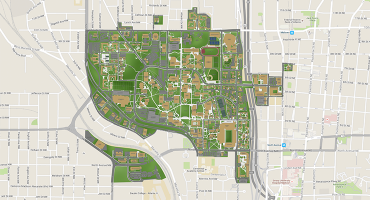The trend for U.S. firms to extend operations beyond U.S. borders and to outsource engineering and construction work to offshore service providers is increasing. This initiative examines the globalizing network dynamics from two perspectives; (1) how globally distributed engineering and construction performance is impacted by cultural/linguistic differences and geographic distance and (2) how firms can assess the performance of their global efforts.
National Science Foundation #1122206
Social knowledge sharing networks are central to organizational success, but with the growth in distributed global organizations, many firms are struggling with the challenge of creating and maintaining relationships that cross geographic, disciplinary, national, and cultural boundaries. This study investigates communities of practice within multinational engineering and construction organizations to build a theory of inclusive, global, knowledge sharing networks. Through social network analysis and qualitative interviews, the research team will theorize knowledge connection formation drivers and knowledge flow patterns. Existing techniques allow us to map networks of relationships, this project will go much further by (1) identifying and measuring the influence of geographic location, discipline, business practice, and generation on knowledge sharing connections; (2) determining the central sources of knowledge and directional flow of knowledge within the networks; (3) analyzing and explaining the conditions facilitating and impeding intra-organizational boundary-spanning knowledge sharing connection creation; and (4) determining why knowledge flows in a particular direction.
TEXT
Construction Industry Institute #RT294
The globalization trend in engineering and construction is enabling new opportunities, but it is also creating new challenges. The well-understood best practices that enable project success in one country or region may or may not be deployed successfully in another country. For example, cultural differences between expatriate project team members arriving in an unfamiliar country and the local project partners and local workforce may impact best practice deployment and negatively impact project performance. In spite of such differences, it is critical that project deliverables are met and that projects succeed to capture the value of expanding into new markets. We are working with a team of about twenty engineering, construction, supplier and procurement firms to develop processes, metrics and tools to improve the deployment of best practices in unfamiliar countries.
National Science Foundation #0729253
We are collecting longitudinal data from three large engineering design firms which are now outsourcing significant portions of complex engineering designs to offshore engineering design service providers in Europe, Asia, and South America. Offshore outsourcing of complex engineering services leads to a large number ‘knowledge system conflicts’ that emerge between on-shore and off-shore engineers. These unfold in dynamic and unpredictable ways and typically occur in situations where regulative design standards do not govern outcomes and differences in work practice norms lead to differences of opinion over the most appropriate design. Within this research investigation we are also conducting experiments to understand the performance of culturally and linguistically diverse teams and to identify specific cultural boundary spanning roles and processes that can improve performance.
TEXT
Construction Industry Institute #RT263
We are working with fifteen engineering, construction, supplier and procurement firms to develop a global self-assessment tool firms can use to quantitatively compare global integration performance to their global reach. This metric and the global self-assessment tool can be used to develop path forward strategies for firms to capture the most value out of their global expansion efforts, to benchmark planned globalizing efforts and actual globalizing results on an annual basis, and to benchmark their performance against other firms of similar type (e.g., engineer, contractor, owner, supplier) if they provide up to date global self-assessment results to the Construction Industry Institute.
FUNDING
National Science Foundation – Virtual Organizations as Sociotechnical Systems Program – Grant #1122206
Amount: $399,806
Duration: 2011 – 2015
Title: Creating Global, Multi-lateral, Knowledge-Sharing Communities of Practice
Construction Industry Institute #RT294
Amount: $195,549
Duration: 2011 – 2013
Title: Deploying Best Practices in Unfamiliar Countries
National Science Foundation – Human and Social Dynamics Program – Grant #0729253
Amount: $642,219
Duration: 2007 – 2011
Title: Knowledge System Dynamics in Complex Services Outsourcing
Construction Industry Institute #RT263
Amount: $174,514
Duration: 2008 – 2011
Title: Building a Successful Global Engineering and Construction Organization
COLLABORATORS
FACULTY
Paul Chinowsky
Professor, UC-Boulder
Semra Comu
Assistant Professor, Bogazici University
Jesus de la Garza
Vecellio Professor, Virginia Tech
Amy Javernick-Will
Associate Professor, UC-Boulder
Josh Iorio
Assistant Director & Adjunct Professor, Virginia Tech
Sirkka Jarvenpaa
Professor, The University of Texas at Austin
Elizabeth Keating
Professor, The University of Texas at Austin
John Messner
Professor, Penn State University
Neda Mohammadi
Post-doctoral Fellow, Georgia Tech


